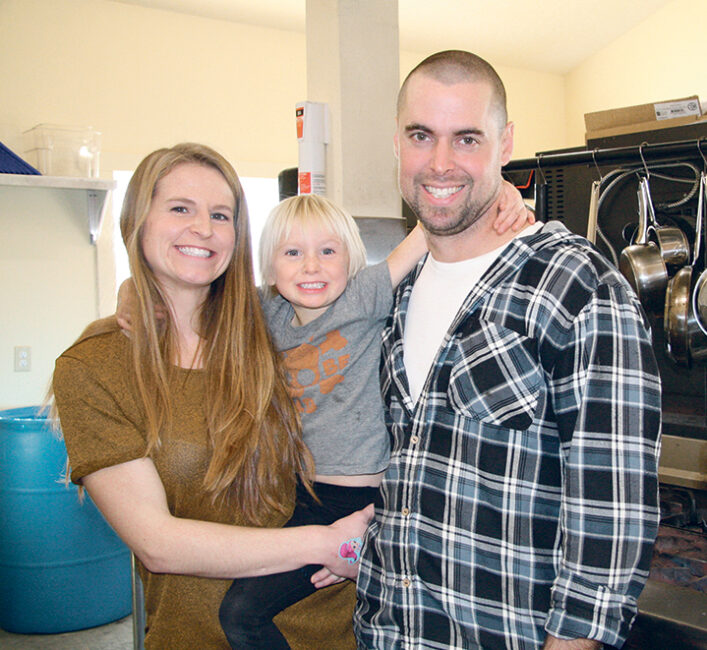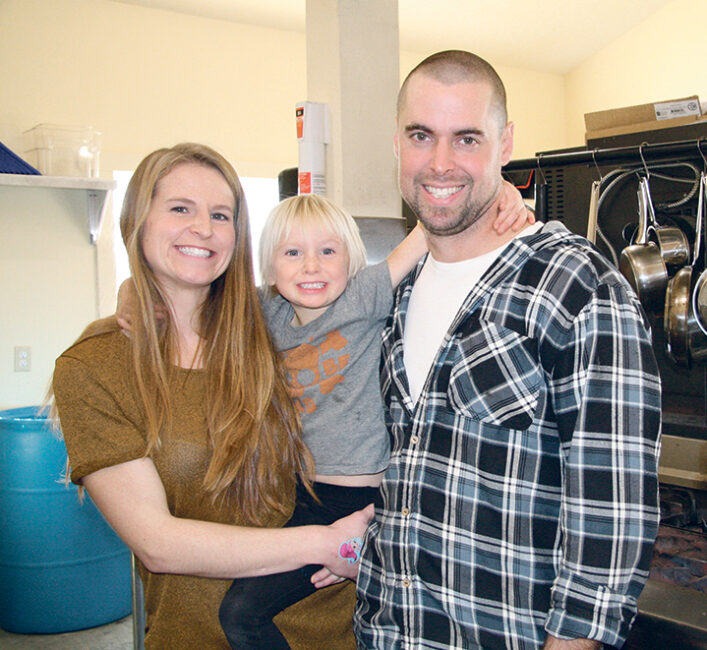Couple brings P.E.I. ideas to prairie farm

On the Farm: A Saskatchewan couple apply culinary talents to prairie terroir to produce unique tastes for the market

DUVAL, Sask. — The story of Hillside Food: Kitchen and Farm goes something like this: two Saskatchewan kids go to Prince Edward Island for school, meet, marry and return to establish a successful farm business.
The reality, of course, is more complex.
Destiny Williams grew up in Regina and worked in restaurants where she learned to appreciate the chefs she met.
Shane Hilderman grew up on the family farm west of Duval, not far from where he and Williams are today.
They met when they both attended culinary school in Charlottetown and spent time working in Atlantic Canada before returning in 2015.
Living and working in a place with strong regional identity gave them ideas about what they could do at home.
They began with a catering business that soon morphed into a value-added agricultural business and retail offerings that reflect their belief in prairie terroir.
Terroir is the notion that food is an expression of place. In P.E.I., that might be lobster from the sea, but in Saskatchewan it’s about the wide-open fields of grain and pastures.
“We knew we wanted to differentiate ourselves,” Hilderman said.
That means pasture-raised pork and beef products, lentils, wild saskatoon berries and garden produce from their own family’s farm and other locals.
“Terroir is the value of what we’re trying to create,” he said. “The year, the location, the season, all tell the story of the flavour of the food and you have to pay attention to hear it.”
Ingredients become hand-crafted dry cured salami and charcuterie, sprouted pickled lentils, ice creams with unique flavours and more.
The products, in packaging Hilderman describes as “humble”, are used at a couple of Regina restaurants including Crave Kitchen and Wine Bar, and Homestead Bar a Vin. Retail products are sold at Rosemont Hardware, Local and Fresh, and the Regina Farmers’ Market.
Hillside is focused on small-batch production to ensure quality and Williams said moving into large-scale production isn’t what they want to do.
The work is done in their commercial kitchen, which was added on to the large brick farmhouse they bought in 2016 and is the only kitchen in the house. Coolers, prep space and storage were all added on as well.
“Before we started building we started talking to the health inspector about what we needed to do,” said Williams. “The only thing is we just don’t get a break from our shop.”
Their sons Cooper, eight, and Benson, six, and four-year-old daughter Jasmine often serve as taste-testers as their dad dreams up a new concoction. This fall, he was working on a fermented tomato ketchup that contains no sugar, vinegar or corn syrup but goes through a dual fermentation process.
In P.E.I., every little farm has something like this going on, said Hilderman.
After culinary school he worked in research and development at Canada’s Smartest Kitchen, which is part of Holland College, helping primary producers take their products to market. That created a lot of questions about what he could do with Saskatchewan products.
Williams said she recognized Hilderman was the idea generator and decided if they were going to be in business an accounting degree would be a good thing. She started it in P.E.I. and finished it through Athabasca University when they moved back. After taking a job in Strasbourg for a while she now works full-time in the food business.
“It just got to be too much,” she said. “We both share the processing role. I try to focus more on marketing and social media. Shane is more product development and menu creator.”
A large part of the business is based on pork products and accompaniments for pork.
Hilderman said the pigs are raised slowly on pasture where they can chew on a variety of food. Even a surplus of crab apples can be in their diet.
They raise about four at a time to suit their fridge capacity and they use as much of the animals as possible.
Hillside also has a worm farm in the compost bin that contains organic waste and manure. From that, Hilderman developed a seed treatment for the family grain farm that he still works on.
Prairie Son Acres includes his parents and his brothers and it grows many of the green lentils Hillside uses in production.
“That’s a 10,000-acre grain farm. We’re like 25 acres in the back corner,” he said.
Considerations for establishing a food business on the farm include water availability and quality. Williams said their well water goes through a greensand filter, reverse osmosis and constant chlorination to ensure it is suitable.
Proximity to market is also something to take into account. Hillside delivers to its main market about 100 kilometres away.
Labour is another issue. Right now, the couple is working 16-hour days and still getting their kids to hockey.
“It’s a hard market to attract young talent,” said Hilderman. “It’s a hard industry to have competitive wages in.”
And, there are failures. Gardens and crops get hailed out and ferments go bad.
But Hilderman and Williams said the blessing of working at home, even though the days are long, is that the family can work together.
They have space designated for an orchard in their yard and are working with meat industry consultant Wolfgang Hammer on improving their processes.
“As our business matures and as we mature we will streamline but we don’t want to ever stop experimenting,” said Hilderman.
Source: producer.com

